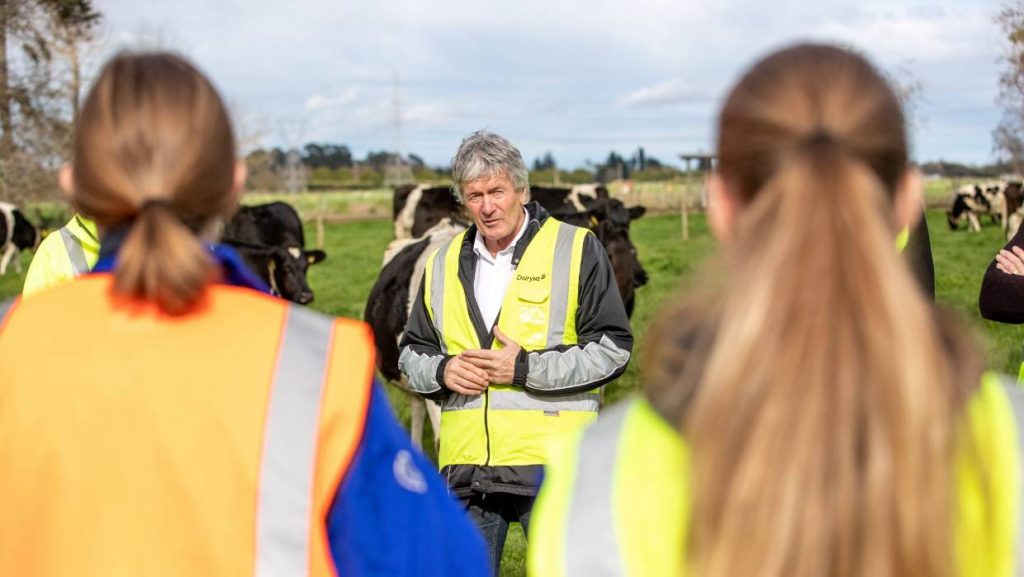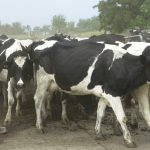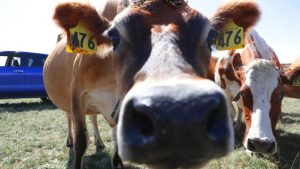
But Agriculture Minister Damien O’Connor is confident more New Zealanders will come forward to enrol as the three-week course is rolled out over the coming months.
O’Connor visited Dairy NZ’s Scott Farm, on the outskirts of Hamilton, on Tuesday where the first group of people to sign up to the free farm ready training were into their second week of the course.
There were just seven people in the group but Dairy NZ said 65 more were working on the online training segment now, which was the first week of the three-week training initiative.
The online segment gave people a clear picture of the dairy industry and a chance to decide whether they wanted to continue on with the training.
“I think the industry still has a big job to get out there and tell the story, to show what opportunities there are in dairy,” O’Connor said, replying to questions about the low number of trainees at the Hamilton farm.
There was still uncertainty around Covid-19 and more people would turn to dairy as a secure employment opportunity, he said.
“The conditions are not as bad as people think. You are outdoors dealing with the elements but the rewards are great, you’re learning how to deal with animals and operate machinery.”
The free farm training is part of Dairy NZ’s GoDairy campaign, to encourage more Kiwis into dairy jobs and it is backed by the Ministry of Social Development, the Ministry of Primary Industries and supported by Federated Farmers.
“With Covid-19, we’ve had people been locked out (workers stuck overseas) so we need New Zealanders to help with calving, to help our farmers get the milk out and help run our key dairy industry,” O’Connor said.
The first week of the course, online, focussed on working and living on a dairy farm.
The trainees then moved into the practical training in the second week, which would look at working with cows and farm infrastructure.
On the final week, the people on the course will be put through farm safety exercises.
The training groups will have up to 12 people each and be rolled out around the country. Dairy NZ anticipates there will be 500 people go through the course in total.
Dairy NZ Chief Executive Tim Mackle said the eight candidates in Hamilton will be ready to start work on farms at the end of the three weeks.
“Farmers will do a lot of their own training with them but this is about getting them ready to enter the farm.
“Later on, they can go on to Primary ITO courses if they want.”
Mackle agreed the group was a lot younger than anticipated, most in their early 20s.
“I think over time, sadly we will see more older people unemployed, and that will be a push factor (towards other employment).
“When you are young you can pivot pretty quickly and that’s what these young people have done but I think the demographic will change quickly over the next few months.”
Among the first intake of trainees is Natasha Price, 21, from the Hauraki Plains.
She had finished a degree in ecology and zoology but when the pandemic hit, she realised job opportunities in her field of study would be slim.
“So I thought I would try something different for a career. I grew up on a dairy farm with my family and already have a lot of experience with animals.
“But being on this course means I can learn more about the science and technology involved in running a large-scale farm.”
That included understanding how automation technology had helped advance dairy farming.
“For example in a rotary milking shed, you’ve got automatic cup removers, automatic teat sprayers which save on time getting people to do those jobs.
“We were showed technology that allowed you to use a satellite to measure grass growth on the farm to predict where to graze the cows next. The technology seems limitless.”
Price was commuting from Hauraki Plains to attend the course and said she was excited to be part of the first intake, others were from around the Waikato, South Waikato and Hawke’s Bay.
Some had worked on farms before while others had come from other careers to learn new skills.
“When we finish, I would love to move on to another farm, as a farm assistant and then move my way up the ladder over the years.”
























